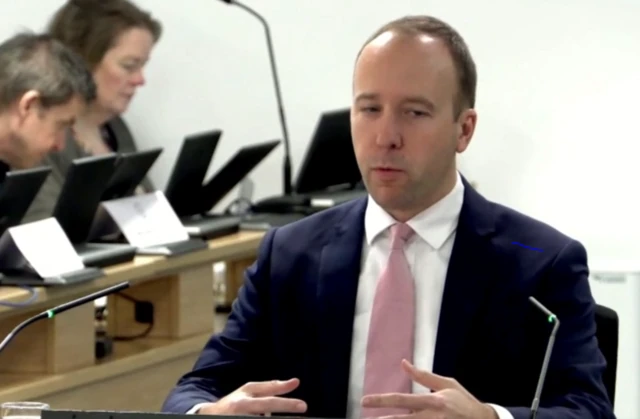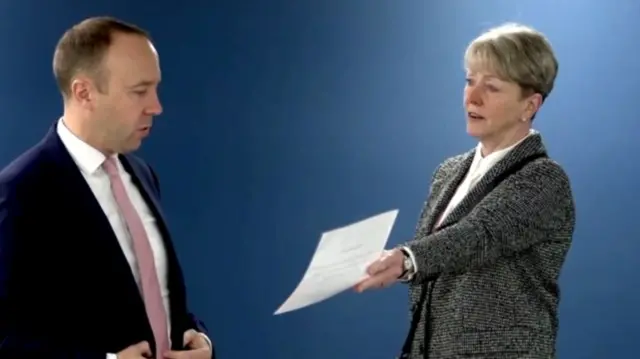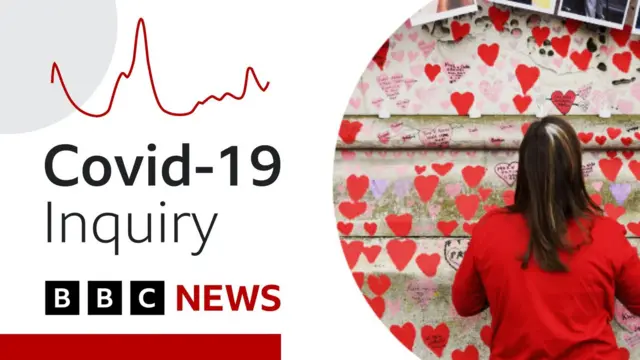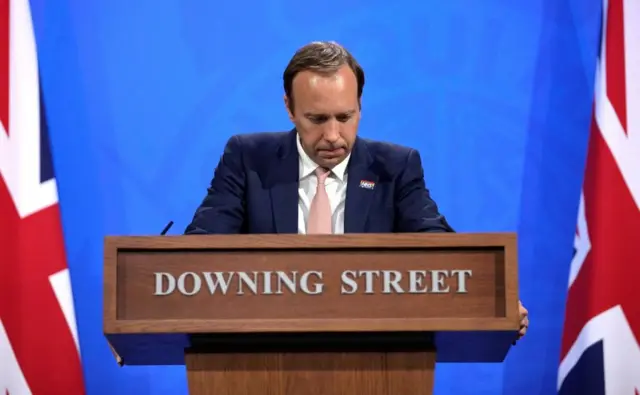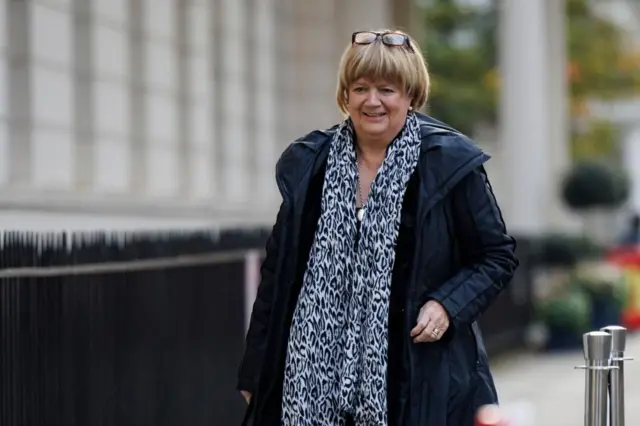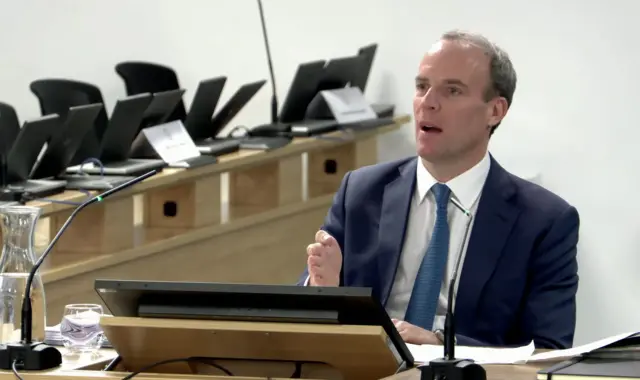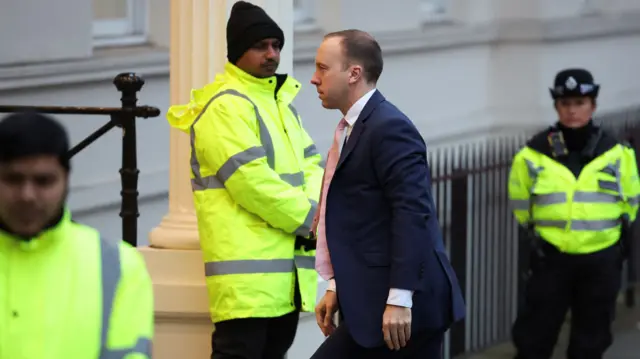Hancock asked if health department was 'in a mess'published at 10:35 GMT 30 November 2023
Hancock is presented with extracts from the diaries of the government's chief scientific adviser at the time, Patrick Vallance.
The extracts, from the summer of 2020, quote senior official expressing concern about the state of the Department for Health and Social Care, describing it as a "mess".
Asked if this is a correct characterisation, Hancock says of course the department did not get everything right and he "wouldn't expect it to".
He adds that it is natural for the Cabinet Office to be "sceptical" of departments, partly to hold them to account.
Hancock says a "toxic culture" at the centre of government was "unhelpful" as it assumed when things went wrong someone was at fault or to blame.
He argues the department did "rise to the challenge" of the pandemic and was successful in areas including testing and vaccines.

